Events
International Symposium of the Baltic Countries and Ukraine on the Elimination of Hepatitis C
26 05 2023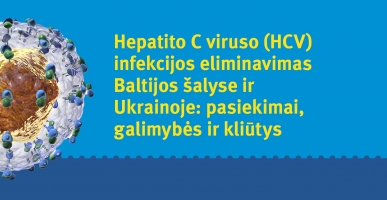
On 19 May, the Division of Biological, Medical, and Geosciences of the Lithuanian Academy of Sciences, together with the Lithuanian Society of Gastroenterologists and the Lithuanian Society of Infectious Diseases, organised the 8th International Symposium ’Elimination of Hepatitis C Virus Infection in the Baltic States and Ukraine: Achievements, Opportunities, and Obstacles‘. The symposium was held in the conference hall of the Martynas Mažvydas National Library of Lithuania.
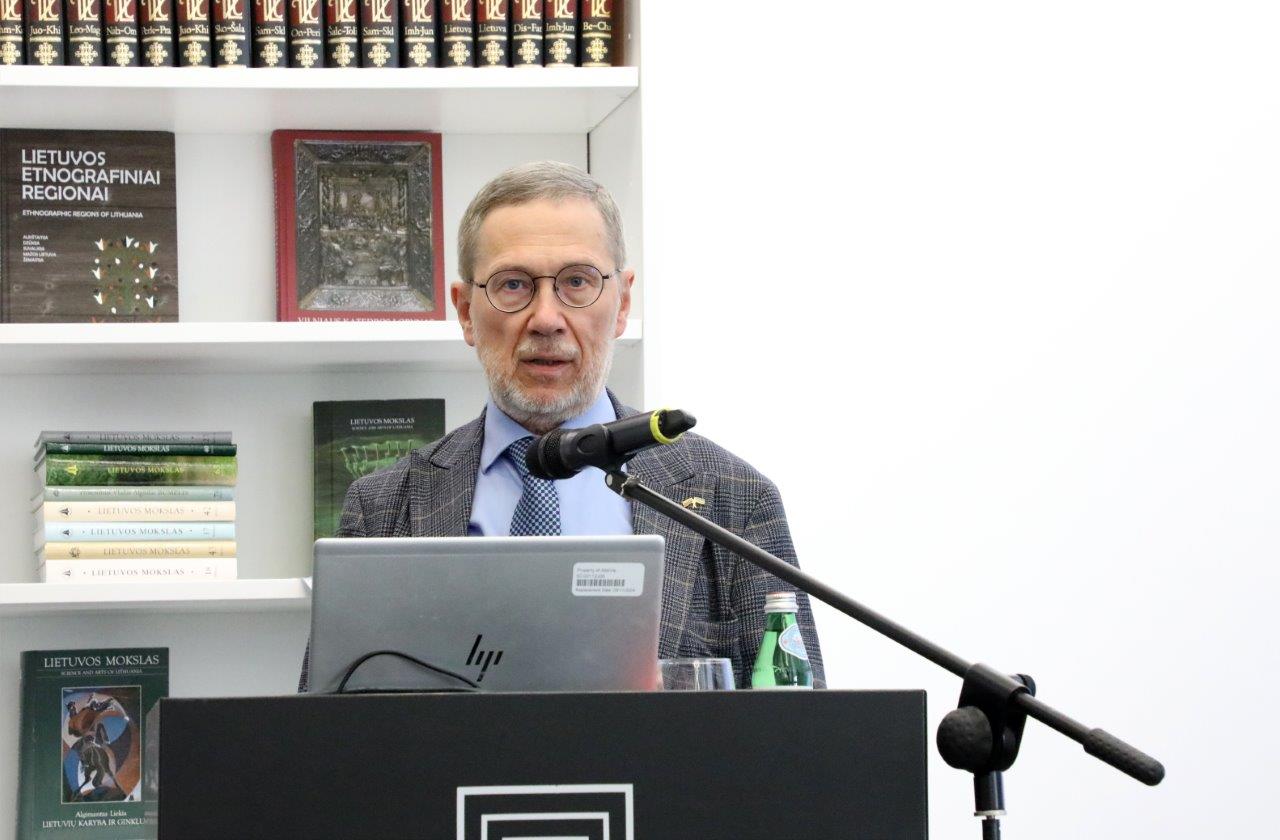
Prof. Liudas Mažylis, a member of the European Parliament and one of the initiators of the screening programme for viral hepatitis C in Lithuania, opened the conference noting the importance of this initiative on an international scale and wished the symposium participants of the successful work.
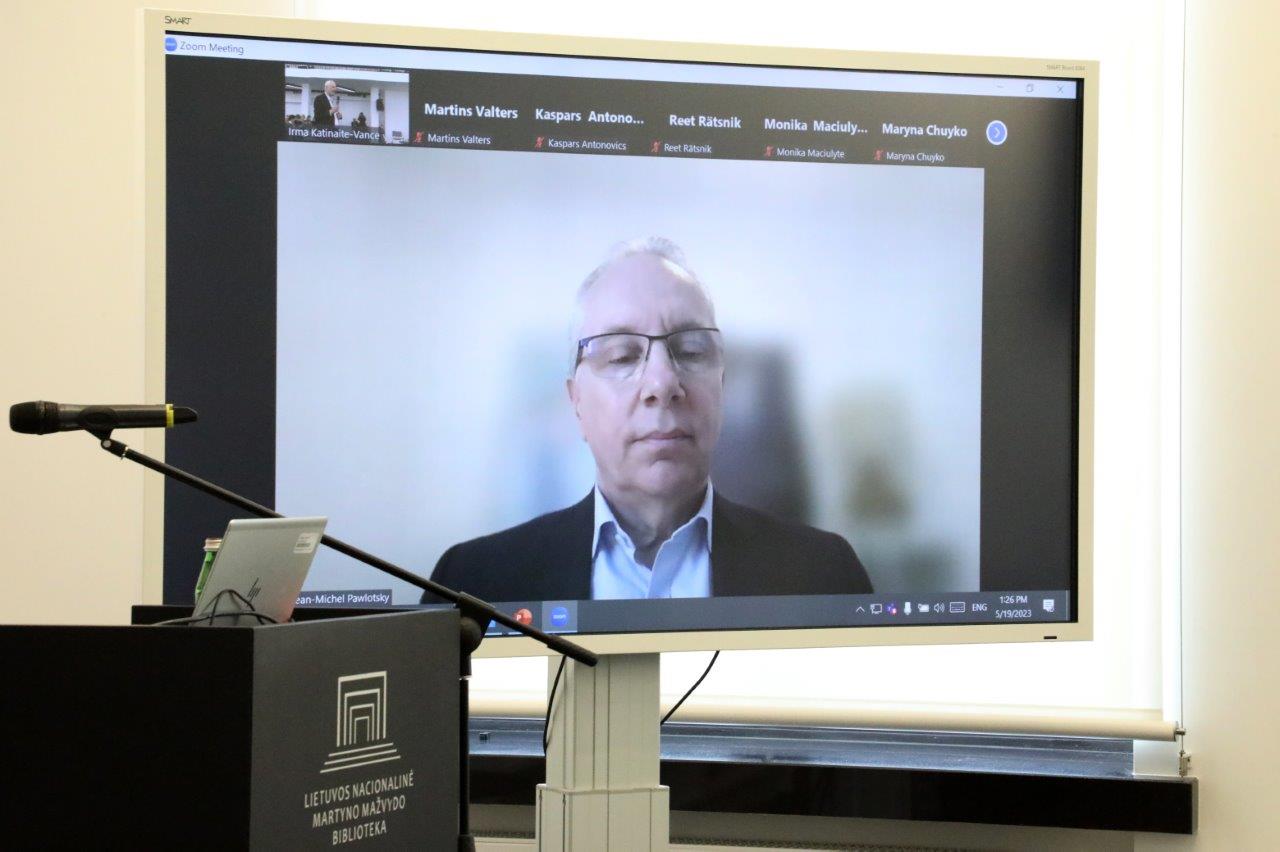
The invited speaker, Prof. Jean-Michel Pawlotsky (France), said that despite considerable success in treating this infection, it is not easy to detect latent cases of the disease, therefore national screening programmes are needed.
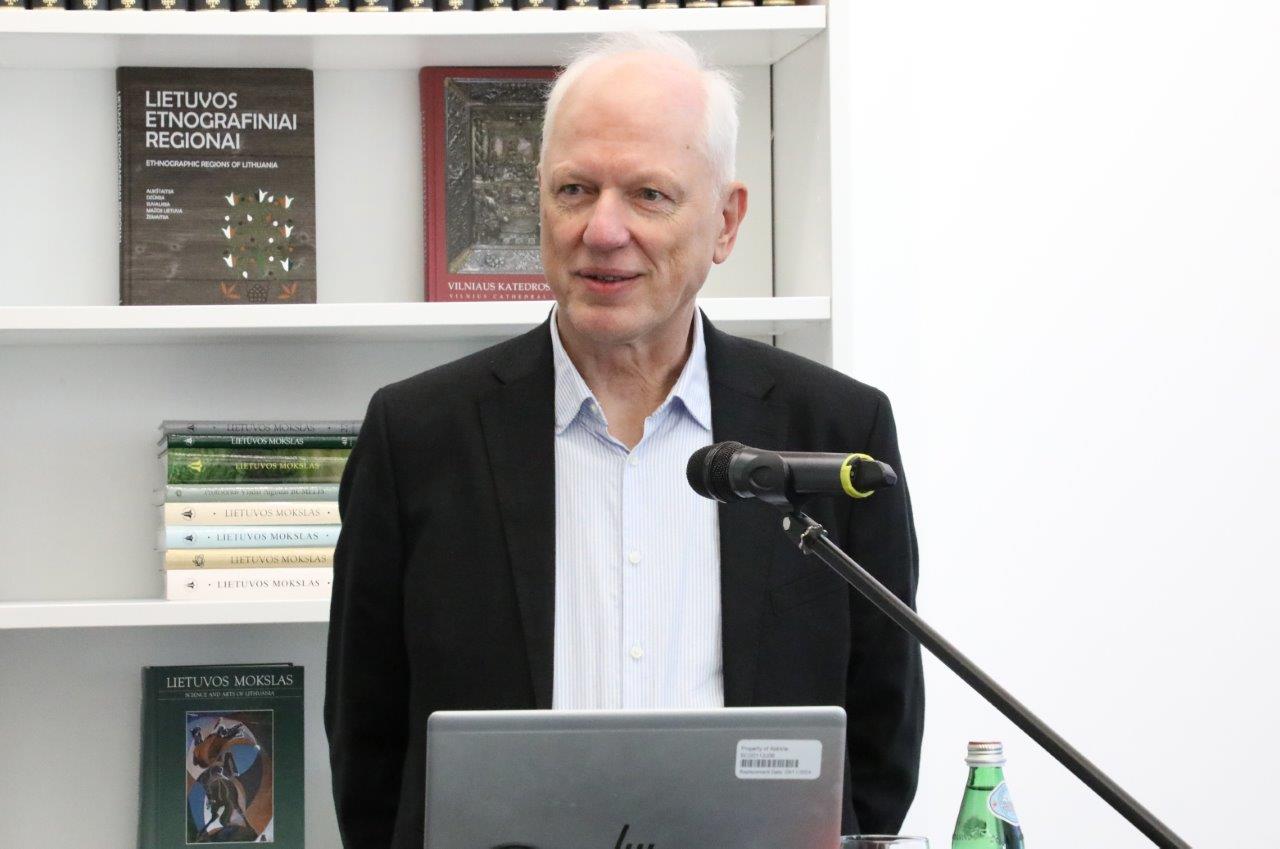
Prof. Limas Kupčinskas, a full member of the Lithuanian Academy of Sciences (Lithuania) presented the programme for the elimination of hepatitis C in Lithuania, which turned out to be very effective: over 750,000 inhabitants of Lithuania born between 1944 and 1994 were screened in one year and more than 6000 cases of hepatitis C were detected. Forty percent of the patients have already started treatment. Since the implementation of the programme is very successful, the plans are to examine the majority (80%) of the population within two years.
Prof. Ieva Tolmane (Latvia) presented a report on the elimination of HCV infection in Latvia, and prof. Riina Salupere, (Estonia) spoke about the elimination situation in Estonia. Assoc. Prof. Gediminas Urbonas (Lithuania) gave a report on the role of the general practitioner in HCV screening, and Assoc. Prof. Arida Buivydienė (Lithuania) discussed patient monitoring after the eradication of the hepatitis C virus. Ukrainian specialists participated in the symposium remotely.
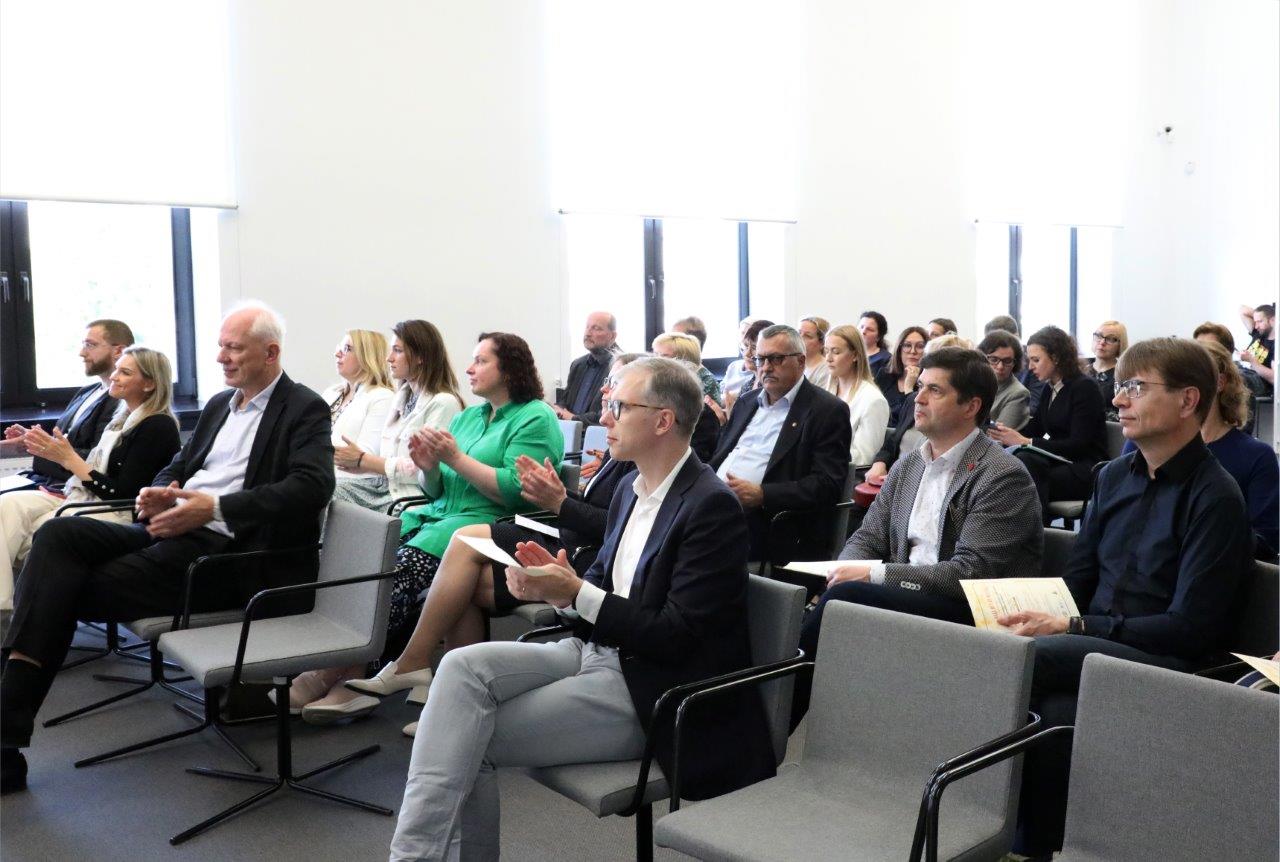
Prof. Juozas Kupčinskas (Lithuania), an alumnus of the Young Academy of the Lithuanian Academy of Sciences and the symposium moderator, summarised the event by noting that after the implementation of the hepatitis C screening in Lithuania, this programme will prevent 120 new cases of liver cancer, 90 liver transplants due to advanced liver cirrhosis, and 150 deaths by 2035.
Dr Jadvyga Olechnovičienė
Chief coordinator of the Division of Medical, Biological, and Geosciences of the Lithuanian Academy of Sciences
Photography Virginija Valuckienė
